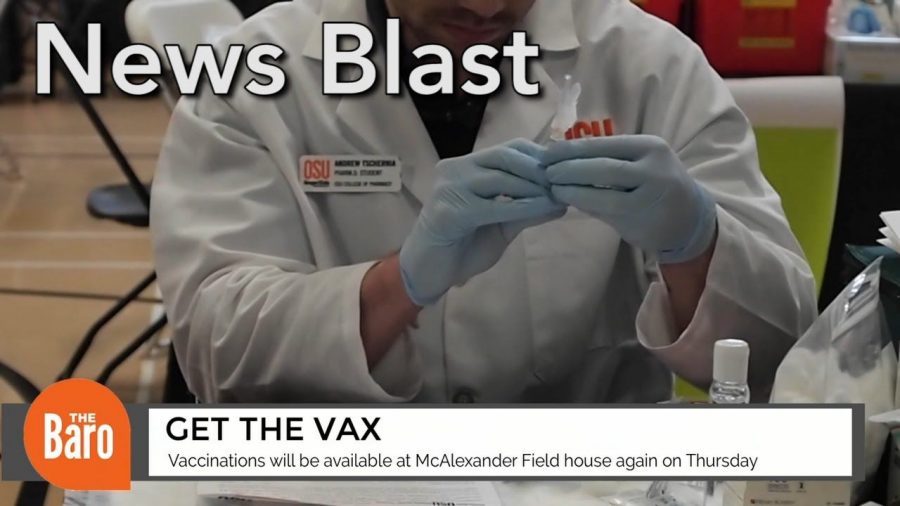Student Health Services hosts vaccination clinic
March 8, 2017
After an outbreak of meningitis in and around campus raised concerns about the safety of students, Student Health Services hosted a vaccination clinic at the Mcalexander Fieldhouse on Wednesday.
“We do not believe this is an emergency or a threat, but it is a serious matter to be aware of given that meningococcal disease can very harmful,” said Steve Clark, vice president for university relations and marketing at Oregon State.
The clinic was necessary under the Centers for Disease Control and Prevention’s guidelines after a third student was diagnosed with meningococcal B disease within a four month period. The other two students were diagnosed last November.
“Once we have had enough cases, three is the cutoff, we consider that an outbreak,” Dr. Jeff Mull, medical director of OSU Student Health Services explained. “This means we want to vaccinate people so we can can hopefully keep new cases from occurring.”
Vaccination clinics will be held from 9 a.m. to 6 p.m. on Wednesday, March 8, and Thursday, March 9, in McAlexander Field House. If students cannot participate in the clinics on March 8 and 9, they can also receive a vaccination at Student Health Services.
Although the time between cases was long, a person does not need to show symptoms to be infected.
“It (Meningitis) can spread very slowly, many people will get the organism in their pharynx and they will carry it there for a while and they won’t get sick and those people can pass it on to others,” Dr. Mull said.
Meningitis is not a common disease, but can be fatal even with medical care. According to statistics from the National Meningitis Association, between 600 and 1000 people get the disease in the U.S. every year, and out those ten to fifteen percent die. 21 percent of people who contract the disease are between the ages of 11 and 25.
All students under the age of 25 are encouraged to get the vaccination, especially those who live in on-campus housing or who are members of – or who visit – fraternal living groups associated with the university, according to a university all-students email.
“The best we can do is immunize as many people as we can,” Dr. Mull said. “We will do further immunization clinics if we need to so everyone has access to the vaccine.”
The vaccination being used at the clinic takes multiple doses to immunize a person. A single dose must have a follow up dose a month later to truly be effective.
The event is open to all students, but the vaccination is not free. Students are required to have their own insurance or insurance coverage provided by their families, but an effort is being made to vaccinate students without insurance coverage as well.
“We have limited university resources that will help cover the cost of vaccinations for students without insurance and who have financial needs,” Clark said.
Although the event is hosted specially for OSU students, members of the Corvallis community outside the university are encouraged to seek the vaccination from their healthcare provider.
“Most of the student population (lives) off campus, so these germs don’t limit themselves to campus,” Charlie Fautin, deputy directory of the Benton County Health Department said. “By definition everything that is (a) university public health concern is also (a county) concern.”
The Benton County Health Department collaborated with Student Health Services as well as Samaritan Health Services, an Oregon-based healthcare provider, to put on the clinic.
“We all have to work together on these things,” Fautin said. “No single entity has the capacity to do something like this on its own.”
Any questions about the disease or the vaccination can be answered by visiting the Student Health Services website at studenthealth.oregonstate.edu or by calling them at 541-737-4184.















































































































